"The Darkest Day of My Life": Synagogue Leaders Speak Out on Painful Closures
"I feel like a needle is piercing me," "I couldn't sleep all night," "It feels like Tisha B'Av." These are the expressions of the synagogue leaders of the busiest and most vibrant synagogues in Israel, forced to shut their life's work. It is chilling.
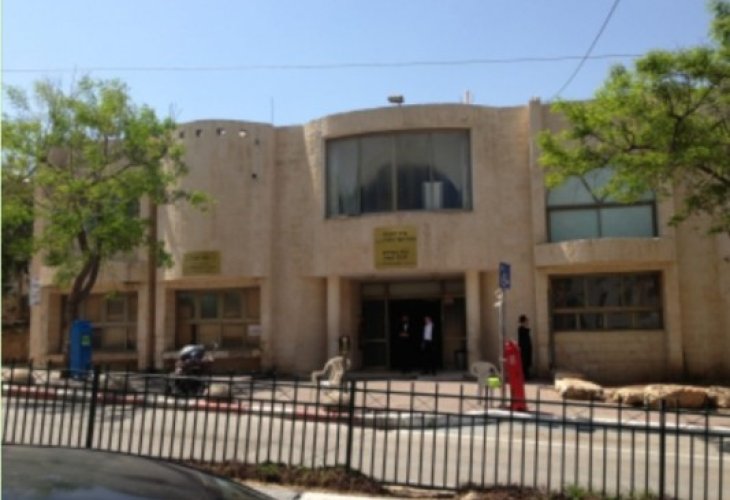 Heichal Yitzchak Synagogue in Modi'in Illit. Photo: Moshe Schlezinger
Heichal Yitzchak Synagogue in Modi'in Illit. Photo: Moshe SchlezingerThe feeling of "their world has darkened" is the current reality for the leaders and founders of the large and vibrant synagogues in the ultra-Orthodox Torah cities. Synagogues that were once lively are now desolate; these places never experienced even half an hour without a minyan, yet now they are closed and locked tightly, with no one going in or out. There are no prayers and no Torah readings. The heart aches at the sight of the notice, "Our Father, Our King, prevent a plague from Your inheritance, due to the Ministry of Health's instructions, we are forced to close the synagogue doors."
In these turbulent days, as the number of patients rises and no one knows what tomorrow holds, we went to speak with the leaders to understand the great void in a believer's life: the synagogue.
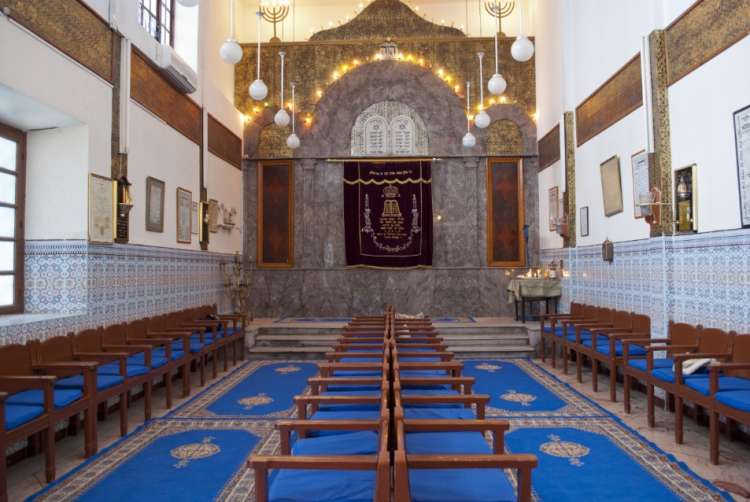 (Photo: shutterstock)
(Photo: shutterstock)
"I Feel Like a Needle is Piercing Me"
Kahal Hasidim Synagogue, Ashdod
Established: 1998
Open Hours: 24/7
Daily Worshippers: 6,000 Jews
Manager: Rabbi Zalman Eisenbach
"Every day I pass by and see the place locked and closed, I feel as if a needle is piercing me." With these words, Rabbi Eisenbach tries to convey the deep pain within. Kahal Hasidim was established over twenty years ago as part of the influx of Haredi communities into Ashdod.
"I've served as the manager here for 11 years," he emphasizes painfully. "Add to that all my days and years praying here, never, never has it closed... not even during the most difficult times, like Operation Cast Lead and subsequent conflicts. It was always open, welcoming every worshipper."
"Further," reveals Rabbi Eisenbach, "the closed synagogues also closed the livelihood of teachers who gave Torah lessons around the clock. The synagogue funds paid them to bring Jews Torah and halacha lessons at any hour. Now, with the gates locked, we can't pay them; it pains me deeply."
How did events unfold? When was the decision made to close?
"For several days, I worked tirelessly to ensure adherence to Ministry of Health guidelines within the synagogue, but police discover they couldn’t maintain strict regulations due to crowds and density. Initially, the officers spoke and explained—until one day they came and closed the gates." Rabbi Eisenbach emphasizes that though the synagogues have been locked, an open area around it hosts multiple minyanim daily, so the sound of prayer isn’t completely silenced.
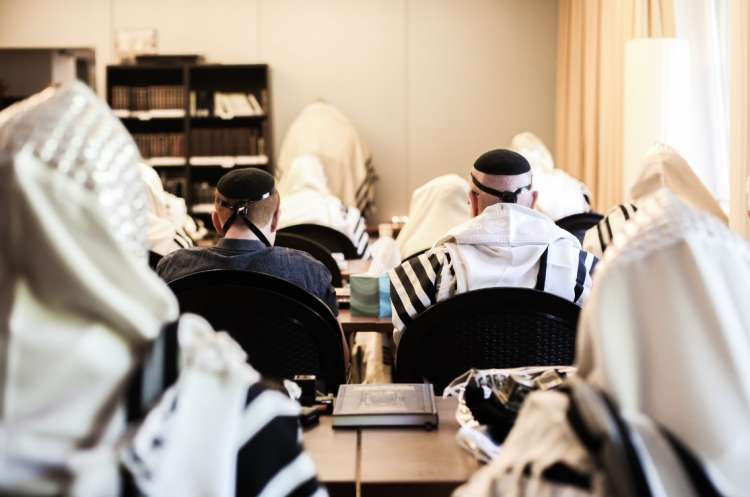 (Illustration: shutterstock)
(Illustration: shutterstock)
"I Couldn't Sleep All Night"
Moussaieff Synagogue, Jerusalem
Established: 1894
Daily Worshippers: 5,500
Open Hours: 24/7
Manager: Rabbi Avraham Cohen
The Moussaieff Synagogue is one of Jerusalem's most famous. It operates as a shtiblach with services round-the-clock and a study hall hosting many Torah lessons. Located in the Bukharan neighborhood, it holds ten prayer rooms in two buildings.
A conversation with Rabbi Cohen reveals the deep pain in his heart. "The synagogue has been active for 126 years, it has never been closed. Not during the British curfew, not during the Six-Day War, and services were even held during the Gulf War occasionally. It's painful."
The closure notice reached Rabbi Cohen on a Thursday, with the synagogue actually closing the next day. "I couldn't sleep all night," he confessed. "It's a tragic disaster for me, that's how I feel."
Many prominent figures prayed there, like Rabbi Ovadia Yosef and the Kabbalist Rabbi Yitzchak Kaduri. "Closing it is a historic event Jerusalem has never witnessed.", he emphasizes.
"Over 100 minyanim daily," confesses Rabbi Cohen. "Over 600 Torah lessons monthly. Many blessings amassed here, now sadly – silent."
When was the last prayer held?
"As mentioned, last Friday we managed to pray before locking the doors."
Rabbi Cohen states firmly, "While prayer is from the rabbis, public health is from the Torah, part of the commandment of 'greatly guard your life'." Therefore, I must prevent the spread of the plague and lock the gates, despite the pain."
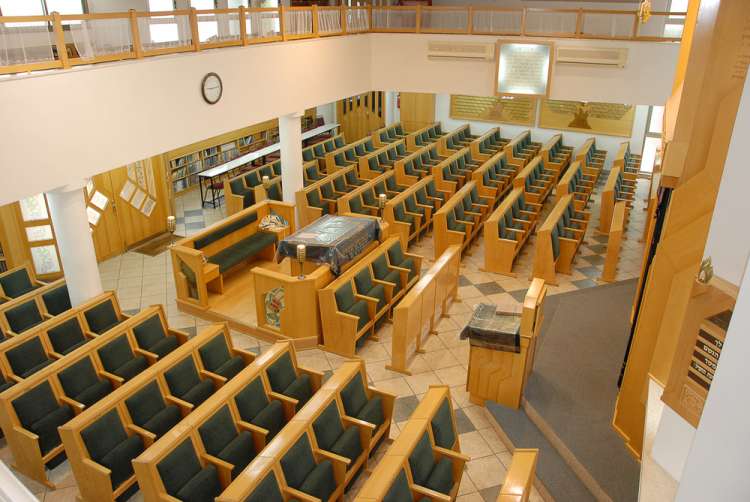 (Illustration: shutterstock)
(Illustration: shutterstock)
Feeling Like Tisha B'Av
Itzkowitz Shtiblach, Bnei Brak
Established: Before the State
Daily Worshippers: 20,000 Jews
Open Hours: 24/7
Manager: Rabbi Yitzchak Sheinin
Itzkowitz Shtiblach proclaims itself as "the most active shtiblach globally." The decades-old numerous prayer rooms earned it the crown of the world's most active synagogue.
Rabbi Yitzchak Sheinin, the legendary manager, knows every detail in the building. It's his home.
"This is my first home," declares Rabbi Sheinin, sobbing uncontrollably. "My private home, where I sleep, is my second. Here, day and night."
"He's the place's father," a regular worshipper emphasizes. "Everyone knows him and gets his help. Whether for hagalat kelim before Pesach. He's a man of tireless action."
Rabbi Sheinin’s world seems shattered. "It’s the saddest day, my personal Tisha B'Av. The pain is immense."
The closure didn’t happen overnight." Shainin reflects, "We couldn't maintain the Ministry of Health's protocols, leading to difficult decisions for public health."
His notice explained the closure: "With the non-compliance to Ministry of Health instructions—10 people per minyan—police visited three times today, forcing me to close."
He added: "Solutions - only Hashem. The synagogue was open all 365 days, but this time, to protect public health, closure was necessary. We hope only for good news."
Rabbi Sheinin emphasizes: "These days are a chance for Israel to awaken divine mercy. Hashem closes our synagogues for a reason. Our duty during difficult times: pray for the end of the decree."
He exudes optimism: "I'll announce soon the synagogue's reopening, doubling lessons, adding minyanim, increasing Torah, and spreading more light."
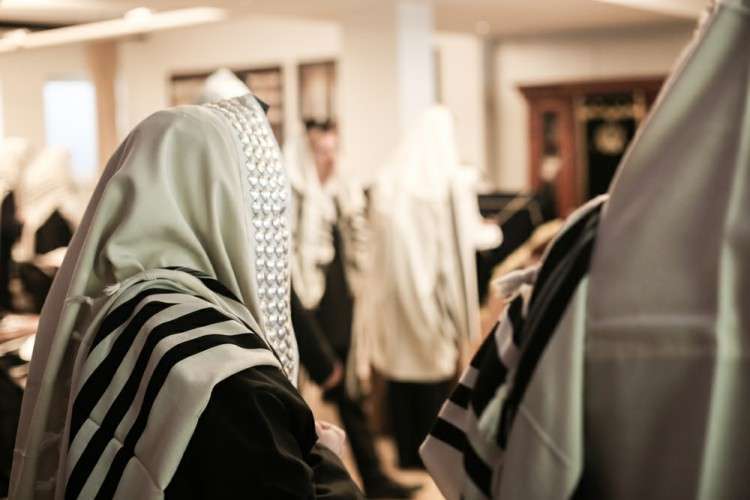 (Photo: shutterstock)
(Photo: shutterstock)
"Terrible Feeling"
Heichal Yitzchak Shtiblach, Modi'in Illit
Established: 1994
Daily Worshippers: 3,500 Jews
Open Hours: 24/7
Manager and Founder: Rabbi Moshe Schlezinger
No child in Modi'in Illit is unfamiliar with Heichal Yitzchak Shtiblach. Rabbi Moshe Schlezinger tells its story of personal responsibility. It began when Modi'in Illit was still new with a lack of accessible synagogues. Rabbi Schlezinger turned an underground shelter into a synagogue.
Over time, demand grew, leading to the construction of today's thriving, lively shtiblach.
Realizing public health guidelines couldn’t be upheld, fine threats for health disruptions mounted pressure. A decision to close after 26 years was made with Rabbi Meir Kessler and city officials.
"The feeling is terrible," voices Rabbi Schlezinger. "Every time I pass by, it pinches my heart."
Determined, Schlezinger never quit seeking solutions: "I suggested pitching small tents allowing social-distanced prayer to maintain services."
Besides managing the shtiblach, Schlezinger is busy aiding those in fear, misunderstanding symptoms, providing support and reassurance.

